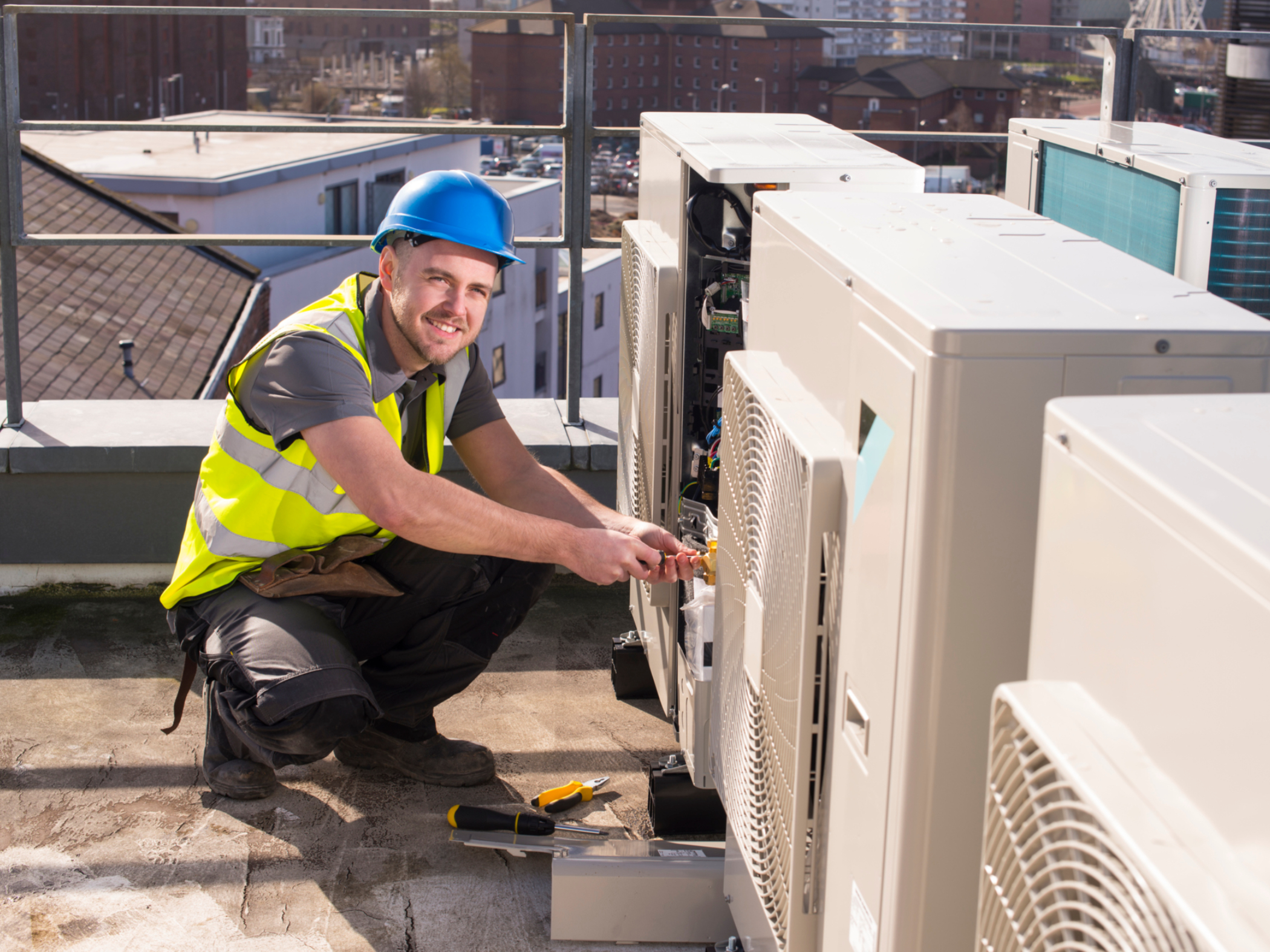Packaged rooftop units provide efficient heating and cooling, but they operate in harsh outdoor environments. Also, because they're located on the roof, they're easy to forget.
This lack of attention can be costly. Poor maintenance can lead to unnecessary repairs, shorten equipment life and reduce system efficiency. Although the primary purpose of a good preventative maintenance program is to optimize overall system performance, the following practices will help lower your summer energy bills:
1. Change filters regularly
Dirty filters block airflow and reduce the efficiency of the system as well as building comfort. Switch out air filters in the unit every season and replace filters inside the building every month between service calls.
2. Clean evaporator and condenser coils
Dirt on the evaporator coil degrades airflow, reducing cooling capacity. A dirty condenser coil raises the condensing temperature, which increases power consumption. Clean coils regularly using soap and water. A specialized cleaning solution may be necessary if the coils have been left untended for some time.
3. Fix air leaks
Air leaks in the cabinet and supply ducts waste conditioned air, reducing system efficiency and occupant comfort. Leaks are a particular problem on the supply air side, where high pressure can force a significant amount of air out of a tiny gap. Inspect for leaks and take corrective action, such as replacing screws, latches or gaskets.
4. Adjust and clean dampers
Dampers provide free cooling at the right temperature. However, if they're stuck open they can waste energy by bringing in hot outside air. If the unit has a damper, clean and lubricate it properly. Also, perform a cycle run-through to ensure that the actuator, dampers and temperature sensors are operating correctly.
5. Check refrigerant levels
Improper refrigerant charge lowers compressor operating efficiency. In an overcharged system, refrigerant backs up, making the compressor work harder. If the unit is undercharged, cooling capacity is reduced. Undercharging typically results from a leak in the system, which should be found and repaired as quickly as possible.
Don't take shortcuts when maintaining your rooftop unit. It may save a little now, but it will cost you more in the long run in higher energy bills and equipment repairs.

